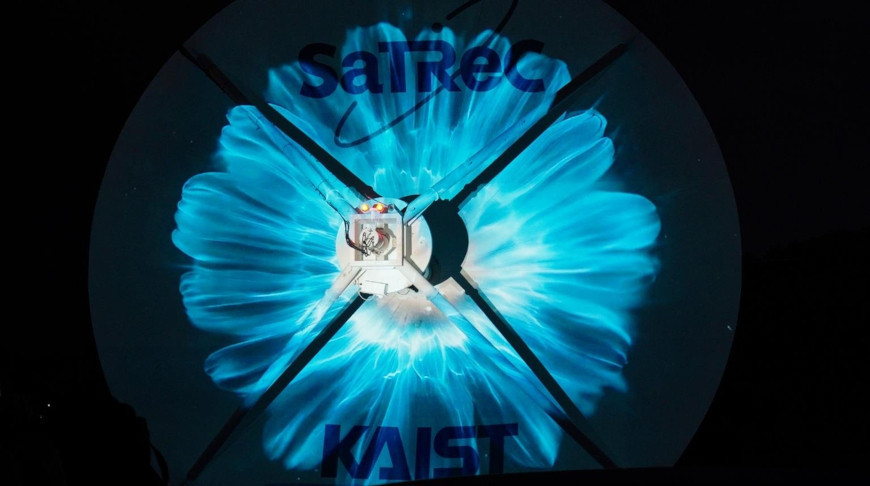
SEOUL, 10 April (BelTA - Yonhap) - South Korean scientists have launched
the music and voice of K-pop star G-Dragon into space as part of an
experimental space art project that blends art, science and technology.
Galaxy Corp., an artificial intelligence (AI) metaverse company representing G-Dragon, said Thursday that a brief greeting by the artist and his latest hit, "Home Sweet Home," were transmitted into outer space from Earth the previous day.
The project is a collaboration among the company, the artist, and the Korea Advanced Institute of Science and Technology (KAIST).
The transmission was made from a 13-meter space antenna installed at the satellite center on the university's campus in Daejeon, around 150 kilometers south of Seoul.
According to the agency, the transmission followed a media artwork display on the antenna, featuring an image generated by AI based on the artist's iris, along with the song.
The artwork, titled "Iris," was created by Lee Jin-joon, a contemporary artist and associate professor at KAIST. G-Dragon also serves as a visiting professor in the university's mechanical engineering department.
The audio component also included the sound of the Emile Bell, a historic Korean bronze bell over 1,000 years old.
The combined audio was then received by an antenna aboard a next-generation satellite launched in May 2023 on the Nuri rocket and was sent into outer space, according to the university.
KAIST's Satellite Technology Research Center will continue to transmit the audio once a day in the future, the K-pop agency said.
"The iris is a symbol reflecting inner emotions and identity, often referred to as the 'mirror of the soul.' Through this work, I aimed to depict the 'infinite universe seen through the inner self of humanity' by following G-Dragon's perspective," Lee said of the media artwork.
The singer-rapper said he was both thrilled and surprised by the project.
"It's already amazing that the world can share music through the advancement of science, but the fact that one of my cherished songs is being sent into space still feels surreal," he said. "I'm very thrilled, and I hope (my song) has 'found its home properly.'"
Galaxy Corp., an artificial intelligence (AI) metaverse company representing G-Dragon, said Thursday that a brief greeting by the artist and his latest hit, "Home Sweet Home," were transmitted into outer space from Earth the previous day.
The project is a collaboration among the company, the artist, and the Korea Advanced Institute of Science and Technology (KAIST).
The transmission was made from a 13-meter space antenna installed at the satellite center on the university's campus in Daejeon, around 150 kilometers south of Seoul.
According to the agency, the transmission followed a media artwork display on the antenna, featuring an image generated by AI based on the artist's iris, along with the song.
The artwork, titled "Iris," was created by Lee Jin-joon, a contemporary artist and associate professor at KAIST. G-Dragon also serves as a visiting professor in the university's mechanical engineering department.
The audio component also included the sound of the Emile Bell, a historic Korean bronze bell over 1,000 years old.
The combined audio was then received by an antenna aboard a next-generation satellite launched in May 2023 on the Nuri rocket and was sent into outer space, according to the university.
KAIST's Satellite Technology Research Center will continue to transmit the audio once a day in the future, the K-pop agency said.
"The iris is a symbol reflecting inner emotions and identity, often referred to as the 'mirror of the soul.' Through this work, I aimed to depict the 'infinite universe seen through the inner self of humanity' by following G-Dragon's perspective," Lee said of the media artwork.
The singer-rapper said he was both thrilled and surprised by the project.
"It's already amazing that the world can share music through the advancement of science, but the fact that one of my cherished songs is being sent into space still feels surreal," he said. "I'm very thrilled, and I hope (my song) has 'found its home properly.'"













